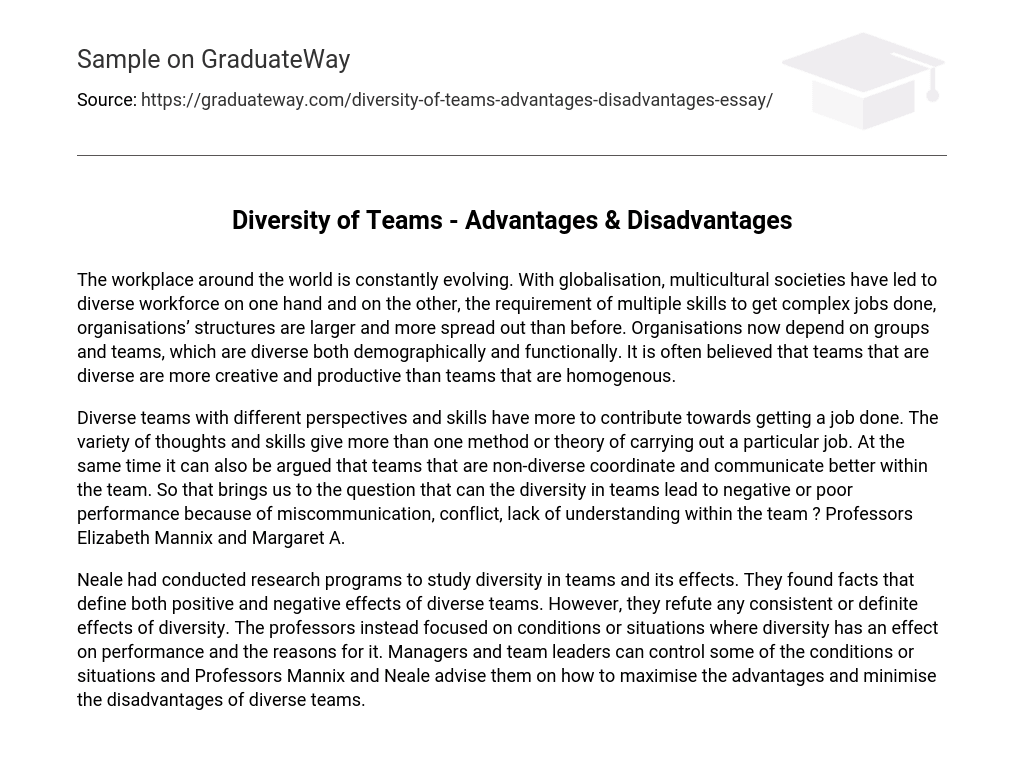The workplace is constantly changing worldwide. Globalization and multicultural societies have resulted in diverse workforces. Additionally, the need for various skills has increased due to complex job requirements. Organizational structures have also become larger and more widespread. As a result, organizations now rely on diverse groups and teams, both in terms of demographics and functions. There is a common belief that diverse teams are more productive and creative compared to homogeneous teams.
The presence of diverse teams, with varying perspectives and skills, adds value to accomplishing tasks. Having a range of thoughts and skills allows for multiple approaches or theories in executing a specific job. Conversely, it is also possible to argue that non-diverse teams exhibit better coordination and communication. Therefore, we are faced with the question of whether diversity in teams can result in negative or subpar performance due to miscommunication, conflict, and a lack of understanding within the team.
Professors Elizabeth Mannix and Margaret A. Neale have conducted research programs on diverse teams and their effects. Their findings reveal both positive and negative impacts of diversity, yet they dispute any consistent or definite effects. Instead, the professors concentrate on identifying the conditions and situations in which diversity influences performance and the underlying reasons. These conditions and situations can be controlled by managers and team leaders, and Professors Mannix and Neale provide guidance on maximizing the benefits and minimizing the drawbacks of diverse teams.





